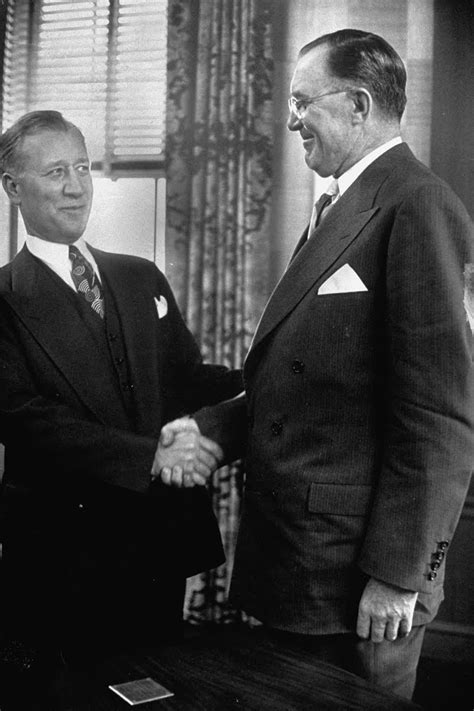A Quote by Haile Selassie
That which man dreams of and to Which he aspires, unless fulfilled in his own lifetime, can produce no actual satisfaction to him. It will be self deceiving and a waste of time to advocate dialogue with those who are not ready to listen, because it is obvious that the freedom of millions is not a commodity subject to bargaining. It is better to die free than to live as slaves.
Related Quotes
These are the things before me. And as I stand here at the door of glory, I look behind me for the last time. I look upon the history of men, which I have learned from the books, and I wonder. It was a long story, and the spirit which moved it was the spirit of man’s freedom. But what is freedom? Freedom from what? There is nothing to take a man’s freedom away from him, save other men. To be free, a man must be free of his brothers. That is freedom. This and nothing else.
According to the technical language of old writers, a thing and its qualities are described as subject and attributes; and thus a man's faculties and acts are attributes of which he is the subject. The mind is the subject in which ideas inhere. Moreover, the man's faculties and acts are employed upon external objects; and from objects all his sensations arise. Hence the part of a man's knowledge which belongs to his own mind, is subjective: that which flows in upon him from the world external to him, is objective.
The therapist can interpret, advise, provide the emotional acceptance and support that nurtures personal growth, and above all, he can listen. I do not mean that he can simply hear the other, but that he will listen actively and purposefully, responding with the instrument of his trade, that is, with the personal vulnerability of his own trembling self. This listening is that which will facilitate the patient's telling of his tale, the telling that can set him free. (5)
The freedom of an individual depends upon that individual's freedom to alter his considerations of space, energy, time and life and his roles in it. If he cannot change his mind about these, he is then fixed and enslaved amidst barriers such as those of the physical universe, and barriers of his own creation. Man thus is seen to be enslaved by barriers of his own creation. He creates these barriers himself, or by agreeing with things which hold these barriers to be actual.
Man is more than his environment. It is from the innate quality of the Spirit in him, his inner storehouse, that he draws those ideas, his intuitions, which unify his perceptions of the external world instantaneously with a value which is qualitative and not quantitative, and which he embodies in the works of his culture - those achievements which belong not only to one particular time but to all times, and mark the path of his upward progress.
Never follow anybody else`s idea - that is very dangerous because you will become imitative. Always follow your own nature, self-nature; only then will you attain to freedom. It is better to die following one`s nature than to live following somebody`s else`s nature, because that will be a pseudo life. To die following one`s nature is beautiful, because that death too will be authentic.
The individual man, in introspecting the fact of his own consciousness, also discovers the primordial natural fact of his freedom: his freedom to choose, his freedom to use or not use his reason about any given subject. In short, the natural fact of his "free will." He also discovers the natural fact of his mind's command over his body and its actions: that is, of his natural ownership over his self.
We need from every man who aspires to leadership-for himself
and his company-a determination to undertake a personal
program of self-development. Nobody is going to order a man
to develop .... Whether a man lags behind or moves ahead in
his specialty is a matter of his own personal application. This is something which takes time, work, and sacrifice. Nobody can do
it for you.
Labor, being itself a commodity, is measured as such by the labor time needed to produce the labor-commodity. And what is needed to produce this labor-commodity? Just enough labor time to produce the objects indispensable to the constant maintenance of labor, that is, to keep the worker alive and in a condition to propagate his race. The natural price of labor is no other than the wage minimum.











































